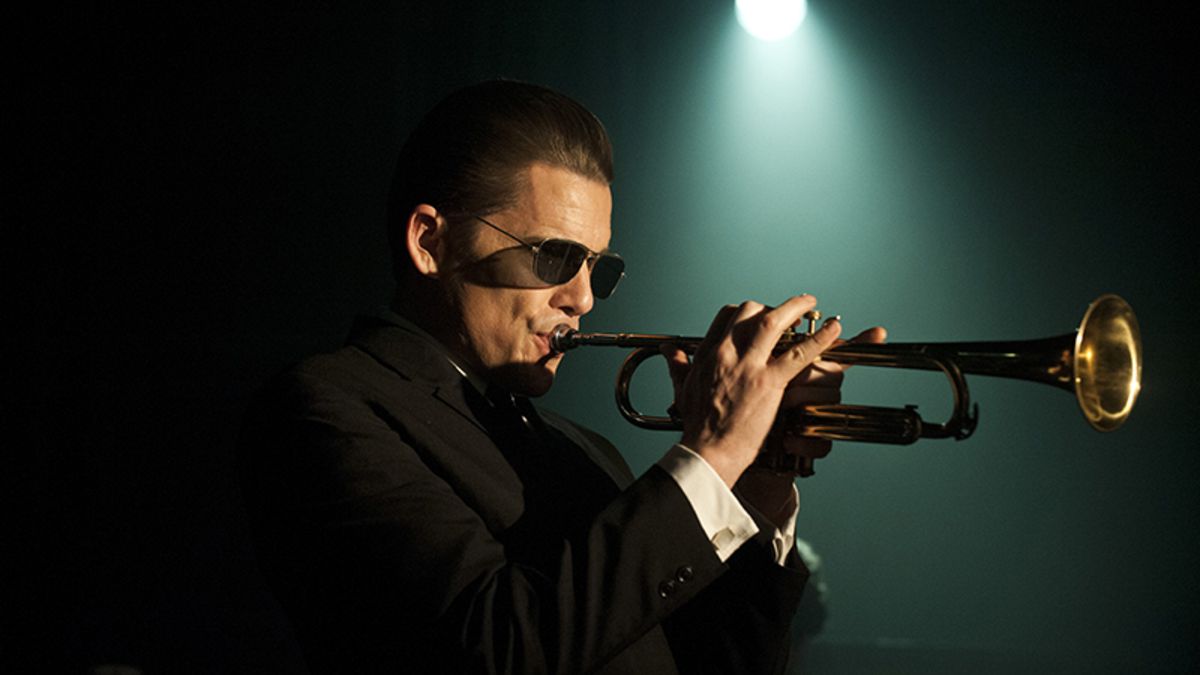
Born to Be Blue (2016) / Drama
MPAA Rated: R for drug use, language, some sexuality and brief violence
Running Time: 97 min.Cast: Ethan Hawke, Carmen Ejogo, Callum Keith Rennie, Tony Nappo
Cameo: Anthony Davis, DeRay Davis
Director: Robert Budreau
Screenplay: Robert Budreau
Review published April 18, 2016
 Written and directed by Robert Budreau
(That Beautiful Somewhere),
Born to Be Blue is a biopic about legendary jazz artist Chet Baker,
focusing mostly on a key period in his career, the 1950s and 1960s,
when he became the pioneer of West Coast jazz. Chet Baker was a
rarity, not only for his music, but because of his skin color -- a
white jazz man playing music alongside even bigger greats like Dizzy
Gillespie and Miles Davis. The film mostly deals with Baker's trouble
with heroin addiction, a traumatic incident in which his "chops" would
be demolished in 1968, and his apprehensive road back to trying to get
where he once was in an industry that no longer believed in him.
Written and directed by Robert Budreau
(That Beautiful Somewhere),
Born to Be Blue is a biopic about legendary jazz artist Chet Baker,
focusing mostly on a key period in his career, the 1950s and 1960s,
when he became the pioneer of West Coast jazz. Chet Baker was a
rarity, not only for his music, but because of his skin color -- a
white jazz man playing music alongside even bigger greats like Dizzy
Gillespie and Miles Davis. The film mostly deals with Baker's trouble
with heroin addiction, a traumatic incident in which his "chops" would
be demolished in 1968, and his apprehensive road back to trying to get
where he once was in an industry that no longer believed in him.